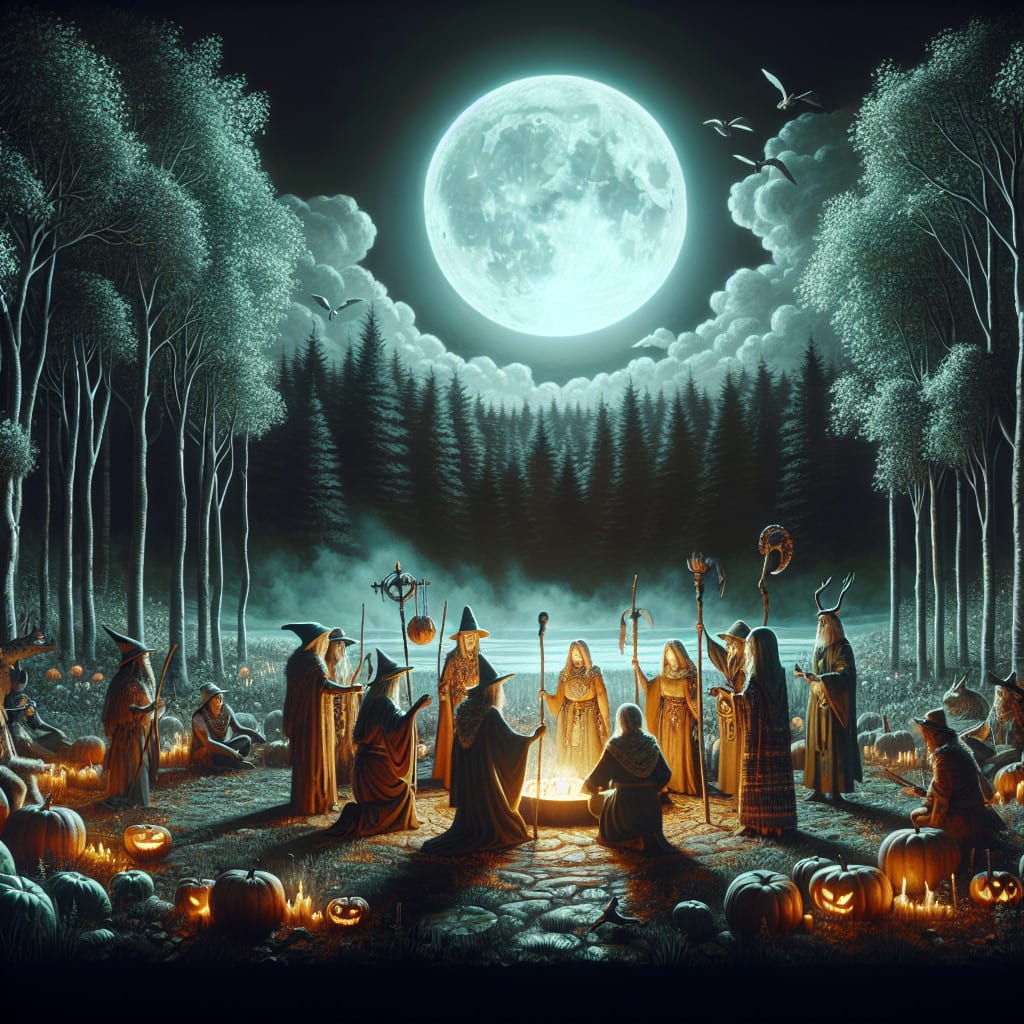Halloween is one of the most beloved holidays celebrated throughout the world. It has become a time of fun, costumes, and candy, but many are unaware of its Pagan origins. All Hallows Eve, as it was originally known, has a fascinating history of Pagan rituals, symbolism, and traditions that have been passed down through the ages. In this article, we will explore the Pagan origins of All Hallows Eve and the various customs that have become associated with it.

All Hallows Eve, also known as Halloween, is an ancient holiday with pagan origins. The history of All Hallows Eve dates back centuries, and its roots can be traced back to the pre-Christian Celtic festival of Samhain. This festival celebrated the end of the harvest season and the beginning of the winter months. It was believed that during this time, the veil between the living and the dead was at its thinnest, and the souls of the dead could roam the earth. Over time, All Hallows Eve has evolved into a modern-day holiday, but its pagan roots are still evident.
What is the meaning of All Hallows Eve?
All Hallows Eve is a celebration of the dead and the transition from autumn to winter. It is a time when the veil between the living and the dead is at its thinnest, and the souls of the dead are said to be able to roam the earth. People often dress up in costumes and use decorations to represent the dead, as well as to ward off evil spirits. The holiday is also associated with bonfires, which are believed to ward off bad luck and evil spirits. In addition, All Hallows Eve is said to be a time when witches and other supernatural beings are at their most powerful.
What are the origins of All Hallows Eve?
The origins of All Hallows Eve can be traced back to the pre-Christian Celtic festival of Samhain. The Celts celebrated Samhain on the night of October 31st, as it marked the end of the harvest season and the beginning of the cold winter months. During this time, the Celts believed that the veil between the living and the dead was at its thinnest, and the souls of the dead were said to be able to roam the earth. In addition, bonfires were lit to ward off evil spirits, and people would dress in costumes to represent the dead.
How has All Hallows Eve evolved over time?
Over time, All Hallows Eve has evolved into a modern-day holiday. In the 8th century, Pope Gregory III declared November 1st to be All Saints Day, a day to honor the saints and martyrs of the Christian faith. As a result, the night before All Saints Day became known as All Hallows Eve. This day eventually became known as Halloween, and it was celebrated with many of the same traditions associated with the pre-Christian Celtic festival, such as dressing in costumes, decorating with pumpkins, and lighting bonfires. In addition, modern-day Halloween has become associated with trick-or-treating and candy, as well as haunted houses and horror movies.
How is All Hallows Eve celebrated today?
Today, All Hallows Eve is celebrated by millions of people around the world. It is a time for dressing up in costumes, decorating with pumpkins, and lighting bonfires. Trick-or-treating is also a popular activity on All Hallows Eve, and many families participate in this tradition. In addition, many people attend Halloween parties and horror movie screenings. These activities are all done in order to honor the dead and to ward off evil spirits. No matter how it is celebrated, All Hallows Eve is a time to remember its pagan roots and to celebrate the transition from autumn to winter.
All Hallows Eve, or Halloween, is a time-honored holiday that has its roots in pagan traditions and beliefs. The Celts believed that the veil between the living and the dead was thinnest on All Hallows Eve, and they celebrated with feasts and bonfires to honor their ancestors. Today, Halloween continues to be a festive occasion, celebrated with costumes, candy, and decorations. Despite its modern form, Halloween still retains its ancient pagan origins, making it a unique and interesting holiday. Ultimately, Halloween is a holiday that celebrates the past and embraces the present, making it a beloved tradition for many.





